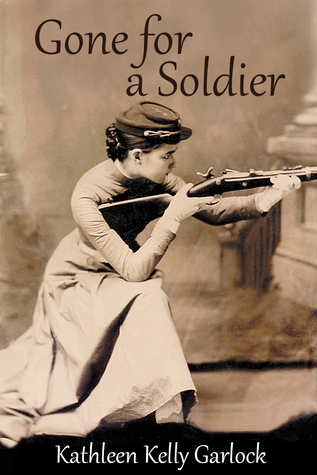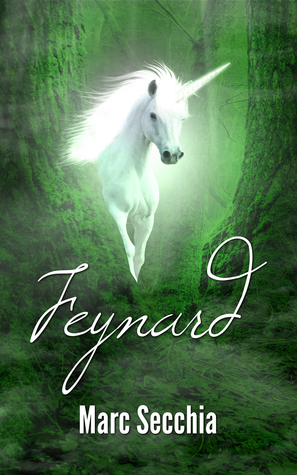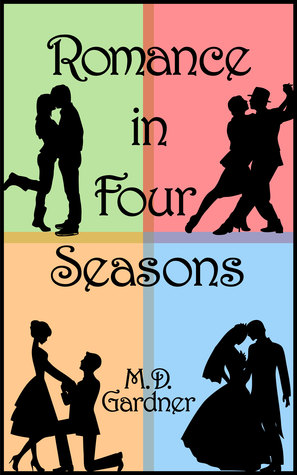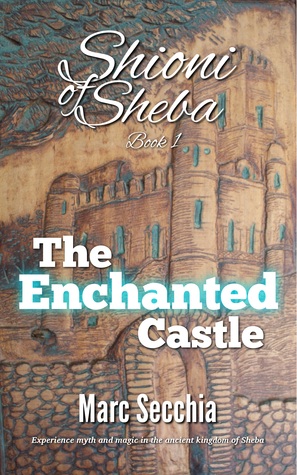by Rachel Barnard
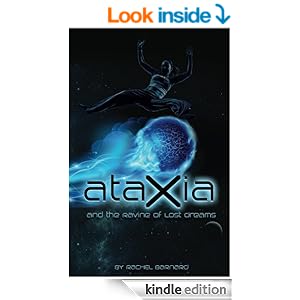
Genre: Science Fiction
Review:
Ataxia
is a fascinating SF young adult adventure set in a rather dark future America,
or the 'New American Nations', which comprises more of our present world than
the USA does today. Rachel Barnard has created an original vision which has
depth and drama.
In
Ataxia and the Ravine of Lost Dreams, a group of young people are being trained
and tested at 'the Academy'. They believe that their performance will be
critical to their future in their somewhat 1984-ish country. The outstanding
achievers hope to win influential positions in government. Ataxia is a
dissident and revolutionary organization which is against the reigning
establishment.
The
heroine of the story is a girl who has been inserted into the Academy by Ataxia
under the assumed identity of 'MC'. Her aim is to become a top competitor at
the Academy so that she can get a position that will allow her to work at
bringing down the establishment from within. However, the story is set almost
entirely within MC's career at the Academy. MC and other characters are
startlingly willing to engage in physical violence against fellow students. I
put this down to the society they live in.
MC
must struggle in her relationships with other students (and competitors), even
while she tries to work out which side her friends and enemies are really on.
She is a very well depicted young adult, with a strong character but from time
to time showing the self-doubt and changeable nature of her youth. At the same
time there is the dominating presence of the Cube and the weekly contests which
are held within its mysterious bounds, within which MC must perform to the
limit of her not inconsiderable ability.
The Cube
is the crown jewel of this book. Brilliantly imagined, with a unique combat system
and technology, it offers limitless variety, wonder, and the drama of face to
face confrontation with enemies and friends. The Cube is one of the prime tools
of the Academy in assessing the students - but it also holds a secret. If you
were wondering about the cover of the book, I believe it shows MC dodging a
fireball in the Cube.
This
brings me to Rachel Barnard's signature writing style. Barnard does not explain
everything to her readers, and does not tie up all the loose ends. Her style is
distinctively personal but easy to read and quite accessible. However, she does
expect her readers to use their own imagination and intelligence to fill in the
gaps she has, I believe intentionally, left in her world. Some readers will not
like this, although I don't personally have a problem with it. I think that the
author's intention is to push the reader to engage personally with the ethical
and conceptual issues she is addressing through her work.
This
book is brilliantly original and has a very well executed concept. I loved the
way relationships changed, and failed, and the way people misunderstood each
other; it made everyone more real to me. Cube combat, the changing world within
it, and the different approaches to its tests, were constantly fascinating. The
story is gripping, the pace is lively, and I really enjoyed it. I recommend it
to anyone who enjoys original SF.
Interview
Rachel Barnard is a talented Indie author who has
published one book of poetry, two novels and is working on another novel.
Q: Hi, Rachel, and welcome to my blog. Thank you
for being willing to do an interview!
RB: You're welcome - and it helped that I already
knew that you liked my work!
Q: I think you're an unusual writer with a unique
personal style. Why do you think that is, or what has made you the writer that
you are?
RB: I'm different, just like everybody else… I've
been influenced by a different combination of people and events in my life. My
dad has a unique sense of humor that I grew up around. I loved science fiction
and strong female characters in fiction growing up. Books in those styles
heavily influenced how I viewed books and subsequently how I write them. Some
authors don't have a unique personal style because they haven't found it yet,
but I had mine from the start.
Q: I hope you don't mind me being provocative. May
I suggest that, because your style is different, you may be alienating some
readers?
RB: There are so many different kinds of books and
so many different kinds of readers, so of course some readers will not like
some books, but David McCullough pointed out that, "…even if you're one in
a million, on a planet of 6.8 billion that means there are nearly 7,000 people
just like you." My style may be different and unique, but I have 7000
people just like me that will love my books and my writing style.
Q: I admire your position. I think many young
writers need this kind of self-possession, or is it self-confidence? Still,
you've had one or two vicious reviews.
How do you respond publicly to malicious criticism? How do you feel
privately?
RB: I grew up rather sheltered and couldn't
comprehend that people could be malicious in real life. I always thought the
bad guys were bad guys on TV and in books. The fact is that the world is full
of mean spiteful people, I just happened to meet more than one in the form of
reviewers for my books. Any review that is less than positive affects an
author. My very first review from someone I didn't know was one of these and it
struck me down because all my feedback had come from friends and loved ones
before. I started to doubt the validity of their opinions and my abilities as a
writer. Reviews that attack the author, and in regards to the ones I've
received, just go to show the ignorance, attention seeking, put down attitudes
of the person. You'll notice that the harshest reviews don't come with a face,
but only an internet anonymous identity. It's very easy to be vicious on the
internet and I try not to respond publicly at all to malicious criticism.
Q: That's good advice for any author!
I have read a little of your poetry - which I love,
by the way! Would you mind telling us why you like to use Spanglish?
RB: I love words and I love to expand my vocabulary
in English and Spanish and other languages. I like to twist two languages
together to make something to capture the essence of both.
Q: You've impressed me with your feel for words and
language, especially in your poetry.
Q: However, I really want to talk about Ataxia - after
all, that's what this post is about! Where in the world - or out of it! - did you get
the ideas contained in Ataxia and the Ravine of Lost Dreams?
RB: At the height of the dystopian craze, I woke up
one morning with a vivid dream of the Cube (the training ground at the Academy
in Ataxia) and went from there. I was influenced by my childhood love of
Ender's Game by Orson Scott Card and my growth as a young adult In knowing that
the world was not centered around me and that I was not invincible (MC's
beliefs in Ataxia). These are two common beliefs in teens and I was starting to
see my own self-centered and invincible ideas crumble away as I stepped into
adult responsibilities. I explore this concept in MC's narrative.
Q: Let me push you some more. Based on several
reader reviews, don't you think that in Ataxia you've left too much
unexplained, and too many loose ends?
RB: Readers today like to be given the whole story
without having to make those leaps of imagination and for that I think I may
have left too many loose ends, but not for the sake of Ataxia itself. One of
the many reasons I self-published Ataxia was that it didn't meet the model of
traditionally published books in the YA category. The original edition was over
the average word count for a young adult book and it featured a theme that was
running dry (girl vs. corrupt society). It is also geared toward a more
imaginative and fill-in-the-blanks thinker.
Q: One of my most admired authors is C J Cherryh,
who, if to a lesser extent than you do, also doesn't explain everything to her
readers. She comes closest in, for example, her fantasy novel The Goblin
Mirror, which is about as enigmatic as Ataxia. So I agree with you that many
readers have gotten too used to being spoon-fed everything.
Q: Who or what was the biggest help to you in
completing and publishing Ataxia?
RB: May I share a personal story of my journey
publishing Ataxia?
Q: Sure!
RB: I have always been a writer and have always
loved writing. I have many ideas buzzing around in my head all the time, but it
wasn't until I was prompted by someone to write out the story of Ataxia that I
began writing fiction in earnest. Before Ataxia I wrote poetry and flash
fiction. I was encouraged to write Ataxia and the man that encouraged me also
promised to sell my book and do the marketing/promotion. He was not an honest
person and over time he got more and more malicious. By the time I had finished
writing the novel and editing as I went along, he had published it under his
name without my permission. Because of that I was spurred to finish my final
editing and create a cover and get my book published under my name as soon as
possible, while at the same time calling out Amazon to take down the
copyright-infringing version under his name. This is the story I have not
publicly told the world, but influenced my timeline for publishing Ataxia.
Q: I appreciate your candor. Fellow writers and new
authors reading this, take heed!
Q: I think Ataxia would make a wonderful movie! Any
ambitions, or prospects in that direction?
RB: I envision Ataxia in my mind (as I wrote it and
as I read it) as a movie, but I've finished with Ataxia and I'm moving on to
new books. I already have an idea for a movie script that I think would be
stellar (a science fantasy similar to Timer and Frequencies) that I would
rather devote my time to than translate Ataxia into a screenplay. Also, a lot
of Ataxia is internalized thoughts that wouldn't translate well into a movie.
Q: Where do you write, and if it is at a desk, what
does your desk look like?
RB: I wrote my entire NaNoWriMo novel on my
Microsoft Surface tablet and do quite a bit of writing and reading on that
device, but for anything that requires a mouse and heavy copy-pasting I use my
dual screens at work.
Q: How disciplined are you as a writer in terms of
writing hours per day, words per day or per week or whatever? What keeps you
going?
RB: The two writers that I currently admire the
most, Hugh Howey and Ksenia Anske, have very disciplined writing habits. I
admire this commitment, but I don't write full time. I have a full time job and
other hobbies and activities I enjoy. I write in between these activities and
usually reserve 30 minutes before work to write and to blog. I made a habit of
getting up earlier for NaNoWriMo and have stuck with the habit as I do my best
writing in the morning when my thoughts are fresh. My goals are what motivate
me to keep going and I'm happiest when I'm accomplishing something. I have
daily lists and weekly lists and schedules for my author goals that keep me on
track to meet my self-imposed deadlines.
Q: You're an Indie, so this is an important
question. How do you define success as a writer?
RB: Most of my success is defined by my own
internal goals as a person. I'm a listaholic and I've created goals for myself
since I was young(er). As an Indie author my highest goals are to be
traditionally published. Sounds like an oxymoron, but for me to be validated as
a writer would be to either make a bundle of money with my books or to be
traditionally published and I think that making a significant amount of money
selling books is a lot more difficult than having one of my manuscripts taken up
by a publisher.
Q: What can you tell us about your involvement in
the Indie writing community?
RB: I'm involved in a local writer's group called
FreeValley Publishing. We're a community of 8 local writers here in the North
Bend/Snoqualmie/Maple Valley area that supports writing and writers. I also
support any local Indie authors that I can find in the Greater Seattle area. I
read Indie books and write reviews on my website (rachelauthorbarnard.com) and
in 2015 will link up with Indie author supporter Jo Michaels for my reviews.
I'm heavily involved with Goodreads and Indie groups on that website. If you're
an Indie author and I like your books, I will be your biggest fan. I may be a
writer, but at heart I'm a die-hard reader.
Q: Jo Michaels is doing great work; I also signed
up for the 2015 review team! (Aside - Hi Jo!)
Q: Who or what successfully distracts you from
writing?
RB: Everything distracts me from writing! I'm not
an author who writes every day, but I'm always working on something towards my
author goals (reading Indie books, updating my website, blogging, talking with
others on Goodreads and facebook, etc.).
Q: If I wanted to become a writer and I was
thinking about following in your footsteps, what advice would you choose to
give me?
RB: Research! Know what you're getting into before
you hit publish. Know what it takes to edit and format your manuscript. Make
sure someone other than yourself reads your manuscript before its
published.
Q: And, I would want to add, someone who isn't too
close to you personally.
Q: What are you working on now, and when might it
be available?
RB: I'm in the editing process of the novel I wrote
during the National Novel Writing Month in November of 2014. It's a young adult
novel currently titled "Donuts in an Empty Field." It's about two
best friends who work through issues of life, death, and the local food
challenge. It will be available in 2015 if I self-publish.
Q: Well, I for one will certainly be looking out for it! Thank you for your time, and I hope you achieve all your goals in
writing!
RB: Thank you, and all the best to you too.
Rachel Barnard's bibliography to date:
Wandering Imagination (Poetry anthology, January 2013)
Ataxia and the Ravine of Lost Dreams (SF novel, March 2014)
At One's Beast (Fantasy novel, July 2014)
Free Flowing Stories (Contributor, Asst. Editor, November 2014)
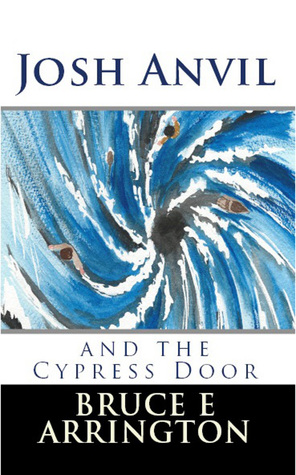 What I'm reading now:
What I'm reading now:
Josh Anvil and the Cypress Door
by Bruce Arrington
I'm about halfway through this amazing middle grades fantasy!
Added to my To-Read List:
Child of Brii
 by Amanda J. McGee
by Amanda J. McGee
